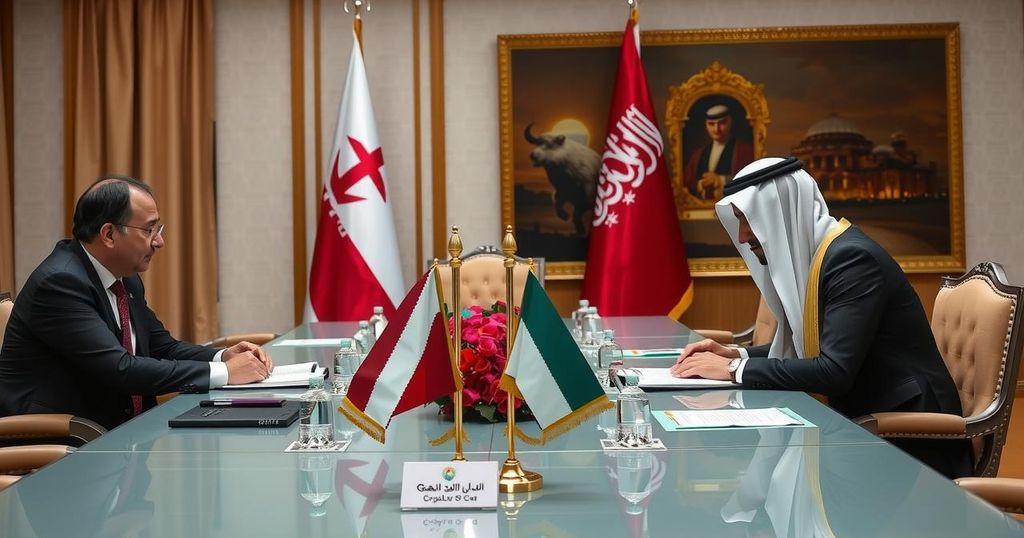The final negotiations for a ceasefire in Gaza begin in Qatar amid increasing dissent among Israeli soldiers regarding military actions. Soldiers like Yotam Vilk and Yuval Green have refused to serve further, citing ethical concerns about the violence against Palestinians. While calls for a ceasefire mount, the debate over military conduct in Gaza continues alongside accusations of war crimes against Israel, contributing to a complex narrative of morality, accountability, and the human cost of war.
The final discussions over a ceasefire in the Gaza conflict are set to commence in Qatar, indicating a critical juncture for both Israeli and Palestinian authorities amid growing international pressure. Yotam Vilk, an Israeli armored corps officer, has publicly criticized Israel’s military operations in Gaza, particularly the tragic killing of an unarmed Palestinian teenager, an incident that remains vividly etched in his memory. Vilk, along with other soldiers, describes a troubling culture of violence and indifference toward Palestinian lives among military ranks, sparking a movement of discontent among Israeli soldiers who refuse to serve further, protesting actions perceived as unethical.
The number of soldiers refusing service, currently around 200, represents a burgeoning sentiment against the ongoing military actions in Gaza, characterized by indiscriminate violence and destruction of civilian property. This movement gains momentum as both domestic and international stakeholders, including prominent leaders from various nations, call for an immediate cessation of hostilities. Notably, international organizations have raised accusations against Israel for potential war crimes and genocide in Gaza, further complicating the humanitarian crisis.
Soldiers like Yuval Green have recounted experiences of distress caused by military orders to destroy homes and commit acts of vandalism against Palestinian property, sparking a profound moral conflict. Green shared that the directive to incinerate a house exemplified a troubling loss of respect for human life, leading him to abandon his post in protest. The Soldiers for the Hostages group, leading the protest against military actions, emphasizes the moral obligation to disobey unjust laws and seeks to encourage other soldiers to speak out, although it has faced backlash from fellow service members mourning the loss of comrades in combat.
While some soldiers articulate feelings of guilt and regret, expressing an acute awareness of the moral injuries inflicted by their military actions, there remains a stark division among military personnel. Some express solidarity with the government’s objectives, believing that the military actions taken are vital for national security. With over 830 soldiers reportedly killed, the ongoing conflict continues to ignite debates around accountability, morality, and the consequences of military engagements in civilian territories.
In summary, as ceasefire negotiations unfold, the voices of soldiers qualifying their experiences shed light on the complex ethical landscape of warfare. With rising discontent among service members and an increasing number voicing their refusal to participate in actions viewed as unjust, the implications for Israel’s military policy and public sentiment are profound.
The ongoing conflict in Gaza has elicited a range of responses from Israeli soldiers, many of whom are grappling with their roles in military operations amid allegations of human rights violations. The Palestinian territories, under Israeli control, have witnessed intense military action resulting in significant civilian casualties and destruction. The growing dissent among Israeli soldiers comes in light of international scrutiny over Israel’s actions and heightened calls from world leaders for a ceasefire. This backdrop of humanitarian concern creates a complex environment as negotiating efforts intensify in Qatar, placing pressure on both Israeli and Palestinian authorities to find common ground and resolve the conflict.
In conclusion, the situation in Gaza remains fluid and deeply contentious, with a segment of Israeli soldiers bravely vocalizing their discomfort with military operations. As ceasefire talks move forward, the calls for accountability and ethical conduct within the military juxtapose the stark realities of warfare and the harsh consequences faced by civilians. The reactions of these soldiers could potentially influence future military policies and reshape the discourse surrounding the Israeli-Palestinian conflict, highlighting the necessity for balanced solutions that respect human rights and seek to facilitate peace.
Original Source: www.arabnews.com






